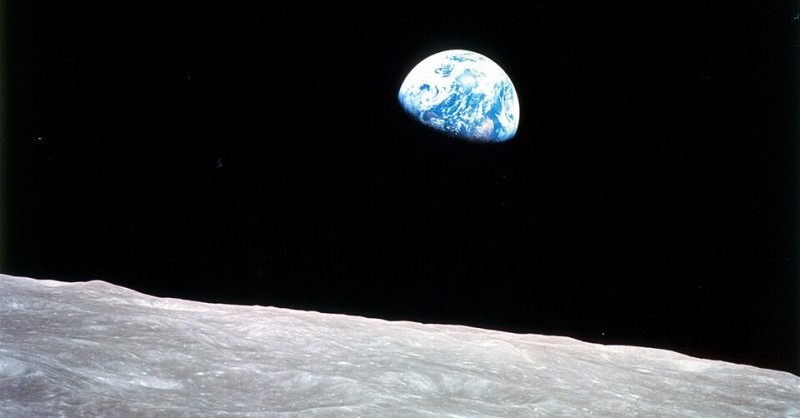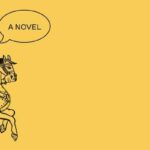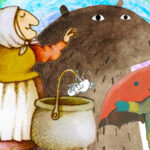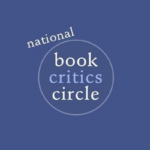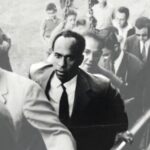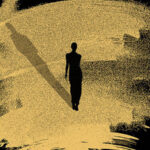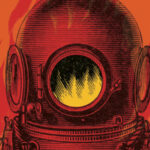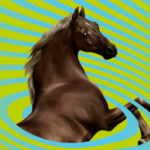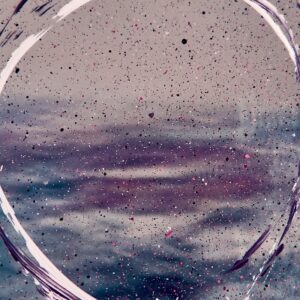Between Anxiety and Hope: On the Cautious Optimism of Lewis Thomas
Sukhada Tatke Remembers the Essayist and His Scientific and Creative Vision
If we were to trace the lineage of our existence, how far would we go? Would we venture countless years beyond our first humanoid ancestors? How deep into the earth’s life would we be willing to travel, and what insights would emerge from such an exploration?
Engaging with the words of the American essayist Lewis Thomas is no simple task. To step into his universe is to shed preconceived notions of ourselves, our existence and our world and be prepared to confront more questions than answers as we come out on the other side.
“I go back, and so do you, like it or not, to a single Ur-ancestor,” Thomas writes in his book The Fragile Species, “whose remains are on display in rocks dated approximately 3.7 thousand million years ago, born a billion or so years after the Earth itself took shape and began cooling down. That first of the line, our n-granduncle, was unmistakably a bacterial cell.” This idea—that we come from very modest beginnings—appears throughout his writing to remind us over and over that humans, like all animals, plants, even bacteria, are related, having emerged from one cell in the primeval seas.
Thomas began his writing career in earnest in the early 1970s, carving a special place for himself in the golden era of contemplation in this speculative and inquiring manner. After or alongside other thinkers of the time—Buckminster Fuller, Peter Singer, Robert Ornstein and Gregory Bateson—Thomas, too, was driven by utopian ideals of perfection, tempered by humane concerns with vulnerability. He was a biologist, immunologist and pathologist of great repute and would later come to also be known as a writer of great repute.
A seemingly paradoxical coupling of anxiety and hope is the cornerstone of Thomas’s writing.He set out to demystify the seemingly arcane world of science with the magic wand of poetic utterance. Having lived through two World Wars and a Cold War, he must have thought the worst was behind him. “Get us through the next few years… safely out of this century…and then watch what we can do,” he wrote. But here we are, well into the 21st century, caught between digital isolation and demagogic collectivism, on the verge of a looming threat of war and climate breakdown.
A seemingly paradoxical coupling of anxiety and hope is the cornerstone of Thomas’s writing: the former a catalyst for the latter. Today, it is this sense of hope and optimism that can light our future path. So too can his consistent message that humans must inevitably coexist, mirroring the interconnected nature of all species on Earth. Some of the science may now feel outdated, but his writing remains a valuable resource for understanding the human adventure and what we may yet need to do to correct course if we want to survive and survive well.
*
Science and humanities are not separate entities, as we are made to believe. Both are an exploration of what makes us human, even though they may take circuitous paths to arrive at the same questions. Thomas, the ‘Poet Laureate of 20th Century Medical Science’ (1989 Albert Lasker Public Service Award citation) seamlessly fused both realms. “Thomas was as likely in print as on the wards to pair epiphany (à la James Joyce) with entropy (à la the second law of thermo-dynamics, or ∆ S > q/T)” wrote his contemporary, Gerald Weissman, a scientist and writer himself. Thomas, according to Weissman, was convinced that medicine was like grammar, “a hybrid of science and art united by syntax.”
Thomas’ literary career began in 1970 after he delivered the keynote address at a conference on inflammation held in Brook Lodge, Michigan. The talk was scintillating and devoid of the often dense and dull voice that permeates academic spaces; characterized instead by elegant and witty prose—a style that would later define him.
Thomas’s speech was published as a pamphlet and soon after, his old friend, Franz Ingelfinger, editor of the New England Journal of Medicine, invited him to write a monthly column “in the same general style”. The terms were attractive: one essay a month on any topic. He would not be paid but was promised that nobody would edit his writing.
This was just a few years after the iconic photograph of Earth rising on the horizon above the moon’s surface captivated the world’s imagination. Much like the way the image permanently altered people’s perspective of our home planet, Thomas’s column ‘Notes of a Biology Watcher’ also elevated readers’ consciousness regarding our place in the vast expanse of the universe.
At the time of Ingelfinger’s offer, Thomas had published about 200 academic papers and some “occasional light verse.” “Good bad verse was what I was pretty good at,” he wrote in his memoir. Eventually, he would go on to publish five essay collections (The Lives of a Cell: Notes of a Biology Watcher; The Medusa and the Snail: More Notes of a Biology Watcher; Late Night Thoughts on Listening to Mahler’s Ninth Symphony; Et Cetera Et Cetera: Notes of a Word Watcher and The Fragile Species), a memoir (The Youngest Science: Notes of a Medicine-Watcher) and a slim collection of poetry (Could I Ask You Something?).
At first, Thomas wrote, by his own admission, “several dreadful essays which I could not bring myself to read.” So, he ditched his initial method of grouping thoughts in a sequential order. Instead, he took to writing fast and freely at night, sometimes after deadline, without outline, form, or method. Within six months, he published six essays on cells, moon germs, symbiosis, and his beloved planet Earth. They received widespread admiration and support for their brevity, accessibility and quiet wisdom, even as he himself viewed his writing as “writing for fun.”
Thomas opens his very first essay “The Lives of a Cell”—later the title of his collection of essays which would win the National Book Prize—meditating on humans as transitory beings and the need for interconnectedness, the leitmotifs of his oeuvre. “We are told that the trouble with Modern Man is that he has been trying to detach himself from nature. He sits in the topmost tiers of polymer, glass, and steel, dangling his pulsing legs, surveying at a distance the writhing life of the planet.
In this scenario, Man comes on as a stupendous lethal force, and the earth is pictured as something delicate, like rising bubbles at the surface of a country pond, or flights of fragile birds. But it is illusion to think that there is anything fragile about the life of the earth; surely this is the toughest membrane imaginable in the universe, opaque to probability, impermeable to death. We are the delicate part, transient and vulnerable as cilia…Man is embedded in nature.”
And because man is embedded in nature, he must engage in dynamic self-organizing systems and natural world symbiosis. “We are not the masters of nature that we thought ourselves; we are as dependent on the rest of life as are the leaves or midges or fish… the earth is a loosely formed, spherical organism, with all its working parts linked in symbiosis.”
While Thomas’ writing quickly rose to acclaim in the scientific and medical community, it was a letter he received—“the nicest letter”—from the writer Joyce Carol Oates that shone a light on him as a substantial literary figure. Oates circulated Thomas’ writing among students to teach the “art of the essay.” She taught his theories “not because they sound revolutionary, but because they are new, novel and seemingly objective explications of what has always been known, though expressed in different terms,” she later wrote in the New York Times.
Inspired by his hero Montaigne, Thomas was a master of the literary essay. No metaphor was out of reach for him, no connection too wild. The sky, for instance, is a “gleaming membrane,” elsewhere it is a “wide-open country, irresistible for exploration;” the earth is “most like a single cell;” language, once it comes alive, “behaves like an active, motile organism;” and an active field of science is like “an immense intellectual anthill; the individual almost vanishes into the mass of minds tumbling over each other, carrying information from place to place, passing it around at the speed of light.”
*
Born on the cusp of the First World War in 1913 in Flushing, New York, to a father who was a surgeon and family doctor and mother a trained nurse, Thomas grew up saturated in the world of science and medicine. All through his childhood, he accompanied his father on house calls. This was the early 20th century, when a medical professional’s job was mostly to comfort the ill and the dying, not to change the course of their illnesses.
From his father he learnt that most illnesses tended to kill some patients and spare others, and if the one spared had a doctor by their side, the patient became convinced the doctor “saved” them. In his memoir, The Youngest Science: Notes of a Medicine-Watcher, Thomas recalls his father telling him he should be careful never to believe this of himself were he to take up the profession.
Perhaps it is why he wore his erudition lightly and sprinkled it with wit and humour. He never claimed to know all the answers as he invited his readers to stretch their understanding of mysterious events, right from within the tiny nucleus of an atom, all the way to the ungraspable surprises of the distant cosmos.
He became haunted by the seemingly limitless ability of man to self-destruct.To read a Lewis Thomas essay is to watch fireworks light up a dark night. Take for instance his essay whimsically titled “Comprehending my Cat Jeoffry.” He begins with a meditation on how the more we learn about nature, “the more we seem to distance ourselves from the rest of life, as though we were separate creatures, so different from other irrelevant occupants of the biosphere as to have arrived from another galaxy.”
Swiftly, he shifts his mind to the etymology of the word “nature” rooted in the Indo-European language of perhaps 35,000 years ago, moving to the Greek and Latin, and wondering how the long memory of such a word could lose its meaning. He then makes an astonishing leap: “What is going on in the minds of… our nonhuman relatives in the biosphere?” From there, he reflects on bacteria, antibiotics, the defensive maneuvers of certain cricket and moth species to evade bats. Finally, he comes to his protagonist—“a small Abyssinian cat, a creature of elegance, grace, and poise, a piece of moving sculpture, and a total mystery.”
Brimming with wonder, he then delivers a most feline sentence about his feline friend: “Just as he is able to hear sounds that I cannot hear, and smell important things of which I am unaware, and suddenly leap like a crazed gymnast from chair to chair, upstairs and downstairs through the house, flawless in every movement and searching for something he never finds, he has periods of long meditation on matters that I know nothing about.”
The allure of Thomas’ writing lies in the philosophical dimension he weaves into the fabric of scientific inquiry. Consider this, a possible nod to the Ship of Theseus thought experiment: “There are some creatures that do not seem to die at all; they simply vanish totally into their own progeny. Single cells do this. The cell becomes two, then four, and so on, and after a while the last trace is gone. It cannot be seen as death; barring mutation, the descendants are simply the first cell, living all over again.”
*
Optimism can come across as twee if overdone. But in Thomas’ hands it is a stethoscope with which he probes the human condition unfolding in the theatre of a grand production. He is not ignorant of the “aggression, grabbiness and terrorism” in nature; he just chooses to highlight the synergy and co-operation instead.
Insects to him are not merely parasites or spreaders of disease or afflictions. They are “indispensable sources of food for aerial and aquatic life, carriers of heredity for plants and technical assistants in the recycling of forest life.” Microbes are friendly and amiable. “We are symbionts, my mitochondria and I, bound together for the advance of the biosphere, living together in harmony, maybe even affection. For sure, I am fond of my microbial engines, and I assume they are pleased by the work they do for me.”
Equally a proponent of altruism in nature, Thomas invites us to take inspiration from ants, bees and termites in how they live as a homogenous unit in their hives, nests and termitaria. The novelist John Updike scoffed at this very “altruistic view of nature” but admired his “shimmering vision of hope.”
Thomas saw us humans a “fragile species, still new to the earth here only a few moments as evolutionary time is measured,” therefore still finding our way. Towards the end of his life, however, Thomas’ Panglossian optimism did seem to falter. He became haunted by the seemingly limitless ability of man to self-destruct, and destruct others in thermo-nuclear warfare. Even though trillions of other species before us lived in collaboration, he wrote that humans were the “anomalies of the moment, the self-conscious children at the edge of the crowd, unsure of our place, unwilling to join up.”
Long before the term Anthropocene was popularized, he defined it lucidly: “We have grown into everywhere, spreading like a new growth over the entire surface, touching and affecting every other kind of life, incorporating ourselves. The earth risks being eutrophied by us. We are now the dominant feature of our own environment.”
For a moment, he even yielded to the temptation of believing that our maturity as a species had peaked, putting us at the risk of leaving behind only a thin layer of our fossils, “radioactive at that.” This could be reversed, he seemed to say, if we let go of our arrogance, and accepted that our existence on earth was a mere accident, a consequence of “pure luck, indeterminate and intentionless,” that there would always exist “imponderable puzzles of cosmology,” that had it not been for one DNA mutation after another paving the way to our current state, “we would still be anaerobic bacteria and there would be no music.”
*
What if we took a moment to look at the earth from the moon, as only a handful before us have done? What if we stretched the moment to encompass geological time? The seas would not always be seas, the mountains not always mountains. We would see giant land masses, slowly drifting away from each other on their crustal plates to form continents. Like most of the planetary inhabitants, humans would appear and vanish in the blink of an eye. And then, facing the immensity of that which we cannot grasp, we would perhaps acknowledge our place in the world.
If lucky, we might also glimpse Thomas’ vision of the world: “Any species capable of producing, at this earliest, juvenile stage of its development…the music of Johann Sebastian Bach, cannot be all bad.”

